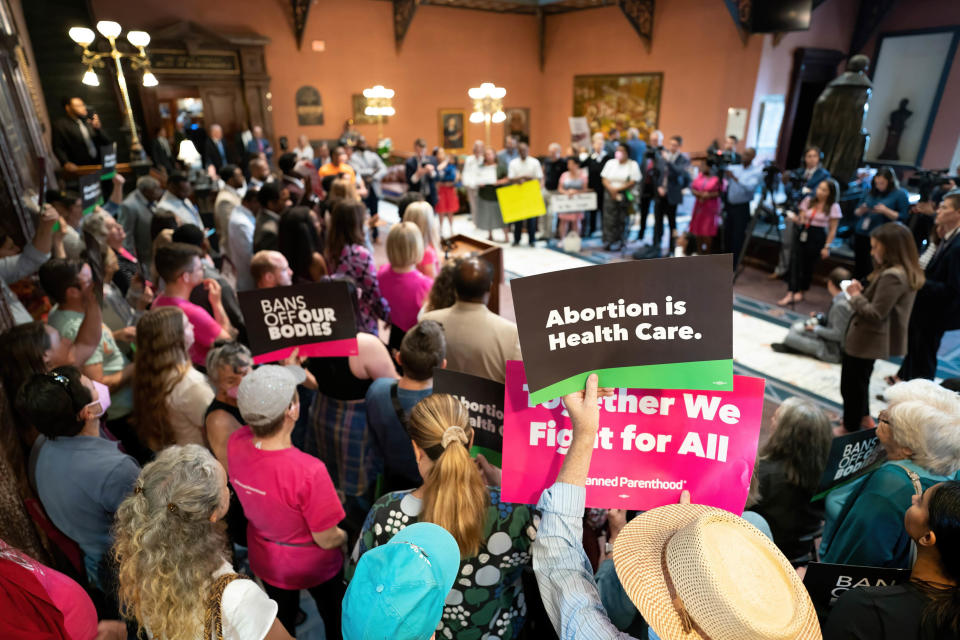South Carolina governor signs 6-week abortion ban into law
- Oops!Something went wrong.Please try again later.
South Carolina Gov. Henry McMaster signed a bill into law on Thursday that bans most abortions after about six weeks of pregnancy.
McMaster, a Republican who has been vocal in his opposition to abortion rights and who promised earlier during the state's legislative session to approve the bill if passed by lawmakers, said the restrictions are effective immediately.
"With my signature, the Fetal Heartbeat and Protection from Abortion Act is now law," McMaster tweeted Thursday morning. His administration is prepared "to defend this legislation" against pushback, he added.
"This is a great day for life in South Carolina, but the fight is not over. We stand ready to defend this legislation against any challenges and are confident we will succeed," the governor said in a statement. "The right to life must be preserved, and we will do everything we can to protect it."

The law restores a stringent set of restrictions on abortions across South Carolina, which the state initially enacted when the U.S. Supreme Court overturned Roe v. Wade last year. That preliminary ban was later overturned by South Carolina's highest court in a ruling that found it violated privacy rights included in the state Constitution.
With the ruling, abortions remained legal in South Carolina through 22 weeks of pregnancy. The state saw a subsequent increase in abortions, as many its southern neighbors passed tighter restrictions on the procedure, and a simultaneous push from Republican legislators and McMaster to redraw legislation that could garner enough support to pass in South Carolina.
The abortion ban signed into law this week is an amended version of a proposal from the state's Republican-led Senate, which aimed to outlaw abortion almost without exception. The bill that ultimately passed includes exceptions for rape and incest, and allows abortions through 12 weeks of pregnancy in those instances when two doctors have certified that the exceptions have been met.
Other requirements to meet the South Carolina law's criteria for exceptional circumstances include previously filed police reports for survivors of sexual assault who are seeking abortions between six and 12 weeks. Republican Rep. Nancy Mace, of South Carolina's state House, recently told CBS News that she opposed the ban because of that mandate.
"I would not support this particular piece of legislation because of the police reporting requirements," Mace said. "I'm a victim of rape myself. I was raped as a teenager at age 16. I couldn't live with myself if I had to have it reported to police. Most rape victims do not report it. It's an extremely traumatic experience. And to force that reporting to local sheriffs is wrong. It's a non-starter."
There are additional exceptions in the South Carolina ban for fatal fetal anomalies and the pregnant person's life and health through 12 weeks, but it otherwise outlaws abortions after the sixth week. Most people do not know they are pregnant six weeks after conception.
Under the terms of the ban, doctors in South Carolina who perform abortions that do not comply with its restrictions could face felony charges punishable by two years in prison and a $10,000 fine.
Biden nominates Gen. Charles "CQ" Brown as Joint Chiefs chairman
Attorneys for Oath Keepers founder react to 18-year sentence
Oath Keepers founder Stewart Rhodes sentenced to 18 years for Jan. 6

